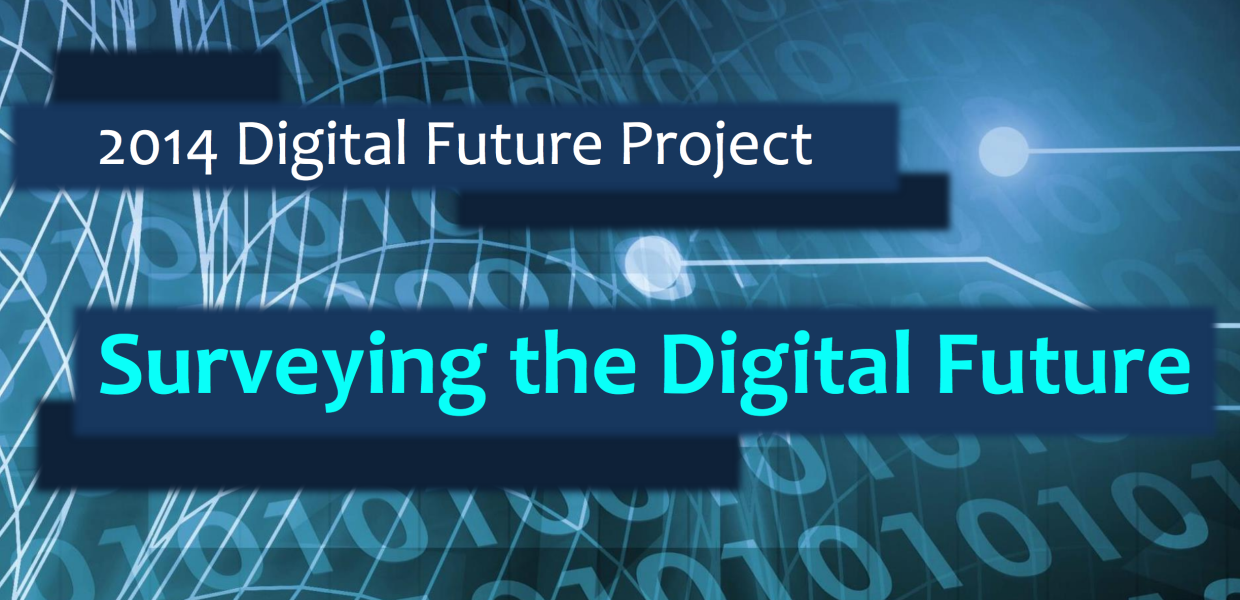The Internet is a growing platform for change in the political process; users’ faith in the reliability of online information continues to decline; and fewer adults approve of children’s online use, according to the annual study of the impact of online technology on Americans by the USC Annenberg Center for the Digital Future.
These views about the role of digital technology in American life are among more than 180 issues explored in the 2014 Digital Future Project, the longest continuing study of the impact of digital technology, and the first to develop a longitudinal survey of the views and behavior of Internet users and non-users. The study is conducted in conjunction with Bovitz Inc.
The Internet: the politician’s best friend — and a powerful tool for voters as well
The 2014 Digital Future study found new, higher percentages of Internet users agree that online technology: is important in political campaigns, builds political influence and understanding and gives people more say in government.
The Digital Future study also found a high percentage agrees that the Internet is a tool that can help users gain political power.
“We may be entering a realm where the Internet plays a larger role in political campaigns than television does,” said Jeffrey I. Cole, director of the Center for the Digital Future. “Digital technology is assuming a critical role in politics — both in getting out the vote and for informing voters — particularly for voters under 35.”
“Republican candidates were slow to recognize the role of the Internet in campaigning, and were caught completely off guard by the Democrats in 2008,” Cole said. “But that was a one-time phenomenon; now both political parties understand the importance of digital technology in their planning.
“The question is becoming: Which party uses online technology better? Who has a message that resonates most effectively through digital media, and whose audience is more willing to participate in elections because of the Internet?” Cole said.
The study found the highest-yet levels of agreement with statements about the growing importance of the Internet in several realms of politics. For example:
- 75 percent of users age 16 and older agree or strongly agree that the Internet is important for the political campaign process
- 63 percent agree that going online can help users better understand politics
- 34 percent agree that the Internet will make public officials care more about what users think
- 32 percent said the Internet can help users have more say over what the government does
Moreover, 37 percent of users age 16 and older said that by using the Internet, people like them can have more political power — near the high of 40 percent reported in 2005.
Is online information reliable?
Among other key findings in the study: Internet users report limited faith in the reliability of information they find online, even on websites they visit regularly.
Forty-one percent of users in the current study said that most or all of the information online is reliable — the lowest level reported in the Digital Future studies since 2009 (39 percent).
Users have more faith in the websites they visit regularly — 75 percent said most or all of the information on the sites they visit regularly is reliable and accurate — but that percentage is the lowest thus far in the Digital Future studies. More than one-quarter (26 percent) said that half or less of the information on the sites they visit regularly is reliable and accurate — a new high for the studies.
The Internet and personal privacy: government and companies
Not surprisingly, a growing percentage of Internet users are worried about the government checking what they do online — 46 percent in the current study. But an even higher percentage — 56 percent — are concerned about companies checking what they do online.
Almost all respondents age 16 and older — 91 percent — express some level of concern about their privacy because companies can track their online behavior.
Internet use: the right amount of time for children?
The adult view about how much time online is proper for children continues to change, and the general trend is not in favor of Internet use. Even though a high percentage of adults in all of the Digital Future studies said that the children in their households spend the right amount of time online, that percentage has been generally declining, and has now dropped to its lowest level in the studies (63 percent).
The percentage of adults who said the children in their household spend too much time online has been increasing steadily since this question was first asked in 2000, and in the current study reached 31 percent, only one percentage point below the peak reported in 2012.
The USC Annenberg Center for the Digital Future: 12 annual studies that explore the digital realm
Since 2000, the USC Annenberg Center for the Digital Future has examined the behavior and views of a national sample of Internet users and non-users in major annual surveys of the impact of the Internet on America. The center also created and organizes the World Internet Project, which includes similar research with 37 international partners in North America, South America, Europe, Asia, the Middle East, and Australasia.
The Digital Future Project
The Digital Future Project provides a broad year-to-year exploration of the influence of the Internet and online technology on Americans. Through a longitudinal survey, the project has examined the behavior and views of a national sample of 1,043 Internet users and non-users. The annual survey has a margin of error of +/- 3.0 percent.
Bovitz Inc.
Bovitz Inc (bovitzinc.com) is a design-driven research and strategy firm that helps organizations uncover opportunity and drive innovation.
Download the Report
To download the 2014 Digital Future Project Report, visit www.digitalcenter.org.









